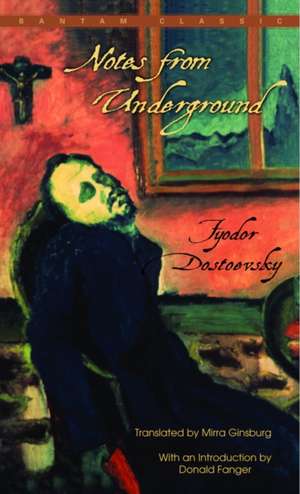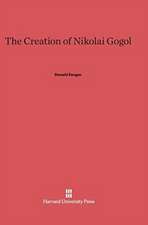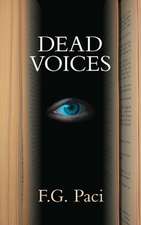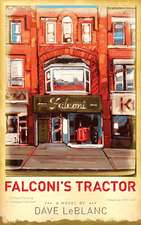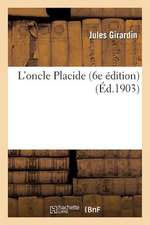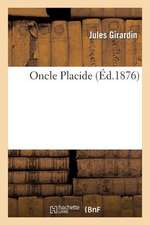Notes from Underground
Autor Fyodor Mikhailovich Dostoevsky Editat de Donald Fanger Traducere de Mirra Ginsburgen Limba Engleză Paperback – 30 sep 1983 – vârsta de la 16 până la 18 ani
“The political cataclysms and cultural revolutions of our century…confirm the status of Notes from Underground as one of the most sheerly astonishing and subversive creations of European fiction.”
–from the Introduction by Donald Fanger
| Toate formatele și edițiile | Preț | Express |
|---|---|---|
| Paperback (4) | 26.15 lei 3-4 săpt. | |
| Bantam Classics – 30 sep 1983 | 26.15 lei 3-4 săpt. | |
| CREATESPACE – 31 ian 2009 | 72.56 lei 3-5 săpt. | |
| Stonewell Press – 18 oct 2013 | 73.29 lei 6-8 săpt. | |
| Classic Books Library – 30 iun 2008 | 74.30 lei 6-8 săpt. | |
| Hardback (2) | 121.22 lei 3-5 săpt. | |
| www.bnpublishing.com – 13 mai 2009 | 121.22 lei 3-5 săpt. | |
| Editorium – iul 2008 | 134.38 lei 6-8 săpt. |
Preț: 26.15 lei
Preț vechi: 28.69 lei
-9% Nou
Puncte Express: 39
Preț estimativ în valută:
5.01€ • 5.21$ • 4.19£
5.01€ • 5.21$ • 4.19£
Carte disponibilă
Livrare economică 20-27 februarie
Preluare comenzi: 021 569.72.76
Specificații
ISBN-13: 9780553211443
ISBN-10: 0553211447
Pagini: 176
Dimensiuni: 106 x 176 x 10 mm
Greutate: 0.09 kg
Ediția:Bantam Classic.
Editura: Bantam Classics
ISBN-10: 0553211447
Pagini: 176
Dimensiuni: 106 x 176 x 10 mm
Greutate: 0.09 kg
Ediția:Bantam Classic.
Editura: Bantam Classics
Notă biografică
His life was as dark and dramatic as the great novels he wrote. He was born in Moscow in 1821, the son of a former army surgeon whose drunken brutality led his own serfs to murder him by pouring vodka down his throat until he strangled. A short first novel, Poor Folk (1846), brought him instant success, but his writing career was cut short by his arrest for alleged subversion against the Tsar in 1849. In prison he was given the "silent treatment" for eight months, before he was led in front of a firing squad. Dressed in a death shroud, he faced an open grave and awaited execution when an order arrived commuting his sentence. He then spent four years at hard labor in a Siberian prison, where he began to suffer from epilepsy, and he only returned to St. Petersburg a full ten years after he left in chains. His prison experiences coupled with his conversion to a conservative and profoundly religious philosophy formes the basis for his great novels. But it was his fortuitous marriage to Anna Snitkina, following a period of utter destitution brought about by his compulsive gambling, that gave Dostoyevsky the emotional stability to complete Crime and Punishment, The Idiot, The Possessed, and The Brothers Karamazov. When he died in 1881, he left a legacy of masterworks that influenced the great thinkers and writers of the Western world.
Extras
PART ONE
UNDERGROUND*
I
I AM a sick man. . . . I am a spiteful man. An unattractive man. I
think that my liver hurts. But actually, I don't know a damn thing
about my illness. I am not even sure what it is that hurts. I am not
in treatment and never have been, although I respect both medicine
and doctors. Besides, I am superstitious in the extreme; well, at
least to the extent of respecting medicine. (I am sufficiently
educated not to be superstitious, but I am.) No, sir, I refuse to see
a doctor simply out of spite. Now, that is something that you
probably will fail to understand. Well, I understand it. Naturally, I
will not be able to explain to you precisely whom I will injure in
this instance by my spite. I know perfectly well that I am certainly
not giving the doctors a "dirty deal" by not seeking treatment. I
know better than anyone that I will only harm myself by this, and no
one else. And yet, if I don't seek a cure, it is out of spite. My
liver hurts? Good, let it hurt still more!
I have been living like this for a long time-about twenty years. Now
I am forty. I used to be in the civil service; today I am not. I was
a mean official. I was rude, and found pleasure in it. After all, I
took no bribes, and so I had to recompense myself at least by this.
(A poor joke, but I will not cross it out. I wrote it, thinking it
would be extremely witty; but now I see that it was only a vile
little attempt at showing off, and just for that I'll let it stand!)
When petitioners came to my desk seeking information, I gnashed my
teeth at them, and gloated insatiably whenever I succeeded in
distressing them. I almost always succeeded. Most of them were timid
folk: naturally-petitioners. But there were also some fops, and among
these I particularly detested a certain officer. He absolutely
refused to submit and clattered revoltingly with his sword. I battled
him over that sword for a year and a half. And finally I got the best
of him. He stopped clattering. This, however, happened long ago, when
I was still a young man. But do you know, gentlemen, what was the
main thing about my spite? Why, the whole point, the vilest part of
it, was that I was constantly and shamefully aware, even at moments
of the most violent spleen, that I was not at all a spiteful, no, not
even an embittered, man. That I was merely frightening sparrows to no
purpose, diverting myself. I might be foaming at the mouth, but bring
me a doll, give me some tea, with a bit of sugar, and I'd most likely
calm down. Indeed, I would be deeply touched, my very heart would
melt, though later I'd surely gnash my teeth at myself and suffer
from insomnia for months. That's how it is with me.
I lied just now when I said that I had been a mean official. I lied
out of sheer spite. I was merely fooling around, both with the
petitioners and with the officer, but in reality I could never have
become malicious. I was aware at every moment of many, many
altogether contrary elements. I felt them swarming inside me, those
contrary elements. I knew that they had swarmed inside me all my
life, begging to be let out, but I never, never allowed them to come
out, just for spite. They tormented me to the point of shame, they
drove me to convulsions-I was so sick and tired of them in the end.
Sick and tired! But perhaps you think, dear sirs, that I am now
repenting of something before you, asking your forgiveness for
something? . . . Indeed, I am quite certain that you think so. But
then, I assure you it doesn't make the slightest difference to me if
you do. . . .
I could not become malicious. In fact, I could not become anything:
neither bad nor good, neither a scoundrel nor an honest man, neither
a hero nor an insect. And now I am eking out my days in my corner,
taunting myself with the bitter and entirely useless consolation that
an intelligent man cannot seriously become anything; that only a fool
can become something. Yes, sir, an intelligent nineteenth-century man
must be, is morally bound to be, an essentially characterless
creature; and a man of character, a man of action-an essentially
limited creature. This is my conviction at the age of forty. I am
forty now, and forty years-why, it is all of a lifetime, it is the
deepest old age. Living past forty is indecent, vulgar, immoral! Now
answer me, sincerely, honestly, who lives past forty? I'll tell you
who does: fools and scoundrels. I will say this right to the face of
all those venerable old men, all those silver-haired, sweet-smelling
old men! I have a right to say it, because I will live to sixty
myself. To seventy! To eighty! . . . Wait, let me catch my breath. .
. .
You might be imagining, gentlemen, that I am trying to amuse you, to
make you laugh? Wrong again. I am not at all the jolly character you
think I am, or may perhaps think I am. But then, if, irritated by all
this prattle (and I feel it already, I feel you are irritated),
you'll take it into your heads to ask me what I am, I'll answer you:
I am a certain collegiate assessor. I worked in order to eat (but
solely for that reason), and when a distant relation left me six
thousand rubles in his will last year, I immediately retired and
settled down in my corner. I had lived here previously as well, but
now I've settled down in this corner. My room is dismal, squalid, at
the very edge of town. My servant is a peasant woman, old, stupid,
vicious out of stupidity, and she always has a foul smell about her
besides.
I am told that the Petersburg climate is becoming bad for me, that
with my niggling means it's too expensive to live in Petersburg. I
know all that, I know it better than all those wise, experienced
counselors and head-shakers. But I stay on in Petersburg; I shall not
leave Petersburg! I shall not leave because. . . . Ah, but what
difference does it make whether I leave or don't leave.
To go on, however-what can a decent man talk about with the greatest pleasure?
Answer: about himself.
Well, then, I too shall talk about myself.
--
UNDERGROUND*
I
I AM a sick man. . . . I am a spiteful man. An unattractive man. I
think that my liver hurts. But actually, I don't know a damn thing
about my illness. I am not even sure what it is that hurts. I am not
in treatment and never have been, although I respect both medicine
and doctors. Besides, I am superstitious in the extreme; well, at
least to the extent of respecting medicine. (I am sufficiently
educated not to be superstitious, but I am.) No, sir, I refuse to see
a doctor simply out of spite. Now, that is something that you
probably will fail to understand. Well, I understand it. Naturally, I
will not be able to explain to you precisely whom I will injure in
this instance by my spite. I know perfectly well that I am certainly
not giving the doctors a "dirty deal" by not seeking treatment. I
know better than anyone that I will only harm myself by this, and no
one else. And yet, if I don't seek a cure, it is out of spite. My
liver hurts? Good, let it hurt still more!
I have been living like this for a long time-about twenty years. Now
I am forty. I used to be in the civil service; today I am not. I was
a mean official. I was rude, and found pleasure in it. After all, I
took no bribes, and so I had to recompense myself at least by this.
(A poor joke, but I will not cross it out. I wrote it, thinking it
would be extremely witty; but now I see that it was only a vile
little attempt at showing off, and just for that I'll let it stand!)
When petitioners came to my desk seeking information, I gnashed my
teeth at them, and gloated insatiably whenever I succeeded in
distressing them. I almost always succeeded. Most of them were timid
folk: naturally-petitioners. But there were also some fops, and among
these I particularly detested a certain officer. He absolutely
refused to submit and clattered revoltingly with his sword. I battled
him over that sword for a year and a half. And finally I got the best
of him. He stopped clattering. This, however, happened long ago, when
I was still a young man. But do you know, gentlemen, what was the
main thing about my spite? Why, the whole point, the vilest part of
it, was that I was constantly and shamefully aware, even at moments
of the most violent spleen, that I was not at all a spiteful, no, not
even an embittered, man. That I was merely frightening sparrows to no
purpose, diverting myself. I might be foaming at the mouth, but bring
me a doll, give me some tea, with a bit of sugar, and I'd most likely
calm down. Indeed, I would be deeply touched, my very heart would
melt, though later I'd surely gnash my teeth at myself and suffer
from insomnia for months. That's how it is with me.
I lied just now when I said that I had been a mean official. I lied
out of sheer spite. I was merely fooling around, both with the
petitioners and with the officer, but in reality I could never have
become malicious. I was aware at every moment of many, many
altogether contrary elements. I felt them swarming inside me, those
contrary elements. I knew that they had swarmed inside me all my
life, begging to be let out, but I never, never allowed them to come
out, just for spite. They tormented me to the point of shame, they
drove me to convulsions-I was so sick and tired of them in the end.
Sick and tired! But perhaps you think, dear sirs, that I am now
repenting of something before you, asking your forgiveness for
something? . . . Indeed, I am quite certain that you think so. But
then, I assure you it doesn't make the slightest difference to me if
you do. . . .
I could not become malicious. In fact, I could not become anything:
neither bad nor good, neither a scoundrel nor an honest man, neither
a hero nor an insect. And now I am eking out my days in my corner,
taunting myself with the bitter and entirely useless consolation that
an intelligent man cannot seriously become anything; that only a fool
can become something. Yes, sir, an intelligent nineteenth-century man
must be, is morally bound to be, an essentially characterless
creature; and a man of character, a man of action-an essentially
limited creature. This is my conviction at the age of forty. I am
forty now, and forty years-why, it is all of a lifetime, it is the
deepest old age. Living past forty is indecent, vulgar, immoral! Now
answer me, sincerely, honestly, who lives past forty? I'll tell you
who does: fools and scoundrels. I will say this right to the face of
all those venerable old men, all those silver-haired, sweet-smelling
old men! I have a right to say it, because I will live to sixty
myself. To seventy! To eighty! . . . Wait, let me catch my breath. .
. .
You might be imagining, gentlemen, that I am trying to amuse you, to
make you laugh? Wrong again. I am not at all the jolly character you
think I am, or may perhaps think I am. But then, if, irritated by all
this prattle (and I feel it already, I feel you are irritated),
you'll take it into your heads to ask me what I am, I'll answer you:
I am a certain collegiate assessor. I worked in order to eat (but
solely for that reason), and when a distant relation left me six
thousand rubles in his will last year, I immediately retired and
settled down in my corner. I had lived here previously as well, but
now I've settled down in this corner. My room is dismal, squalid, at
the very edge of town. My servant is a peasant woman, old, stupid,
vicious out of stupidity, and she always has a foul smell about her
besides.
I am told that the Petersburg climate is becoming bad for me, that
with my niggling means it's too expensive to live in Petersburg. I
know all that, I know it better than all those wise, experienced
counselors and head-shakers. But I stay on in Petersburg; I shall not
leave Petersburg! I shall not leave because. . . . Ah, but what
difference does it make whether I leave or don't leave.
To go on, however-what can a decent man talk about with the greatest pleasure?
Answer: about himself.
Well, then, I too shall talk about myself.
--
